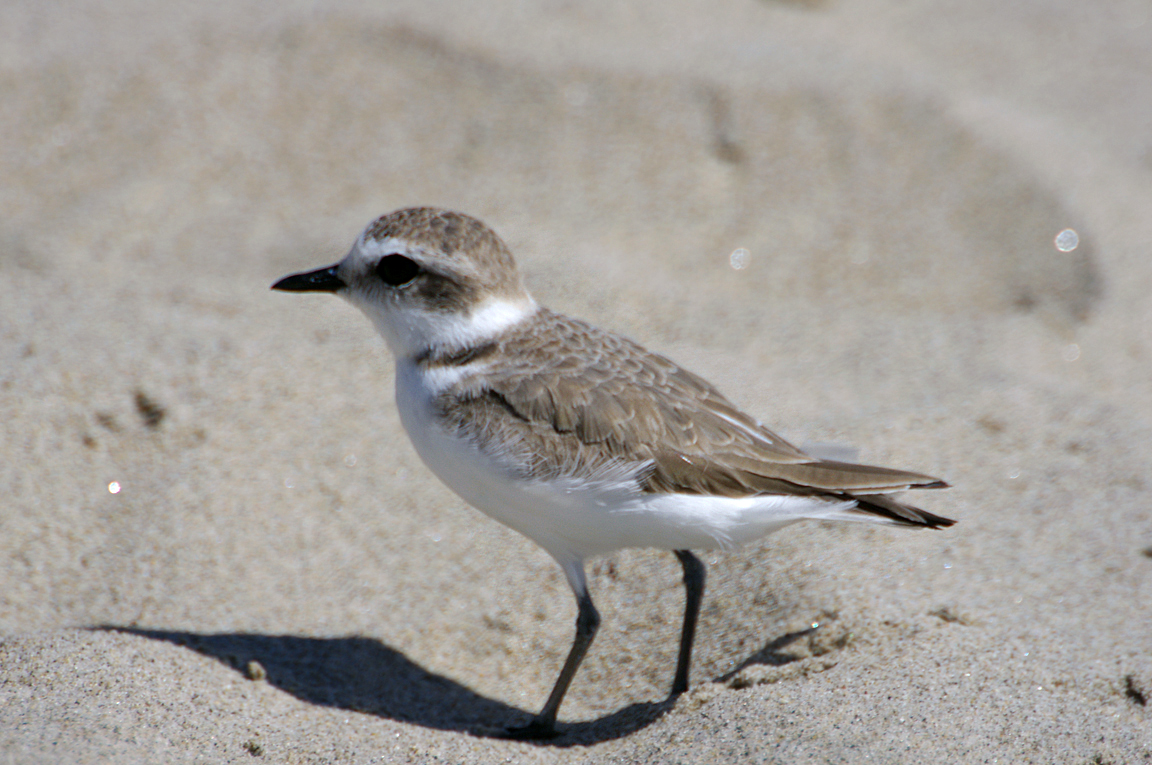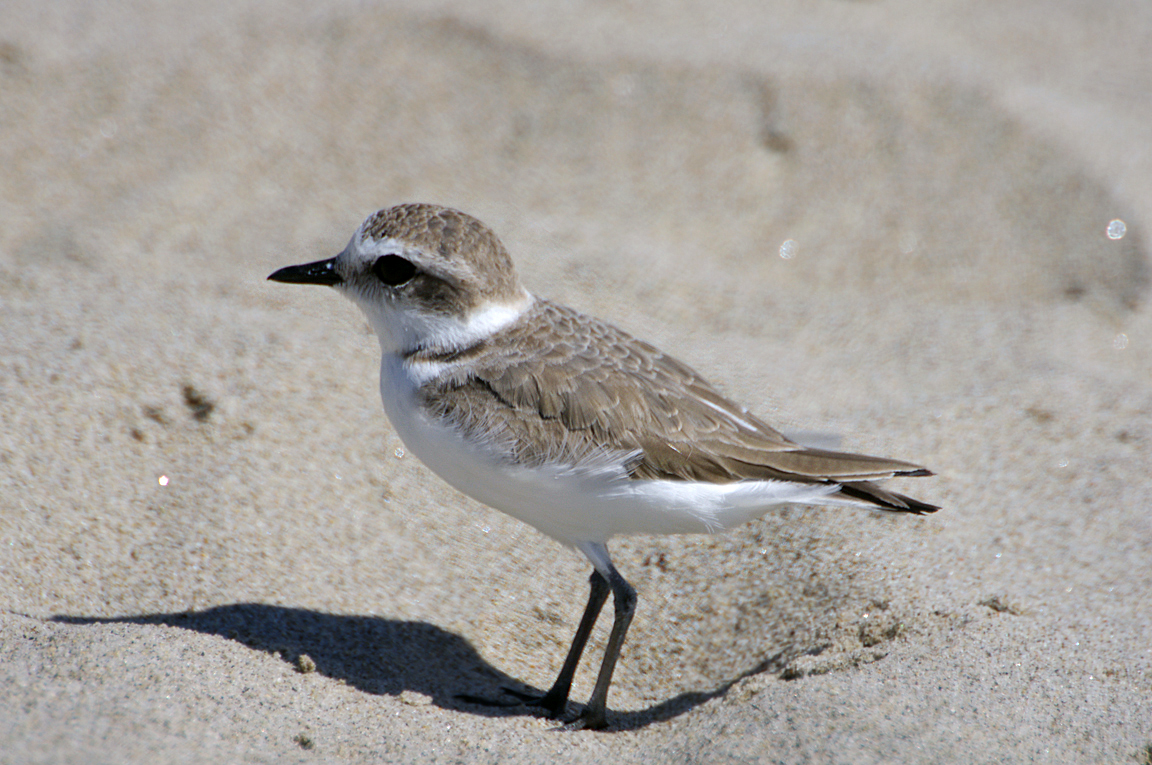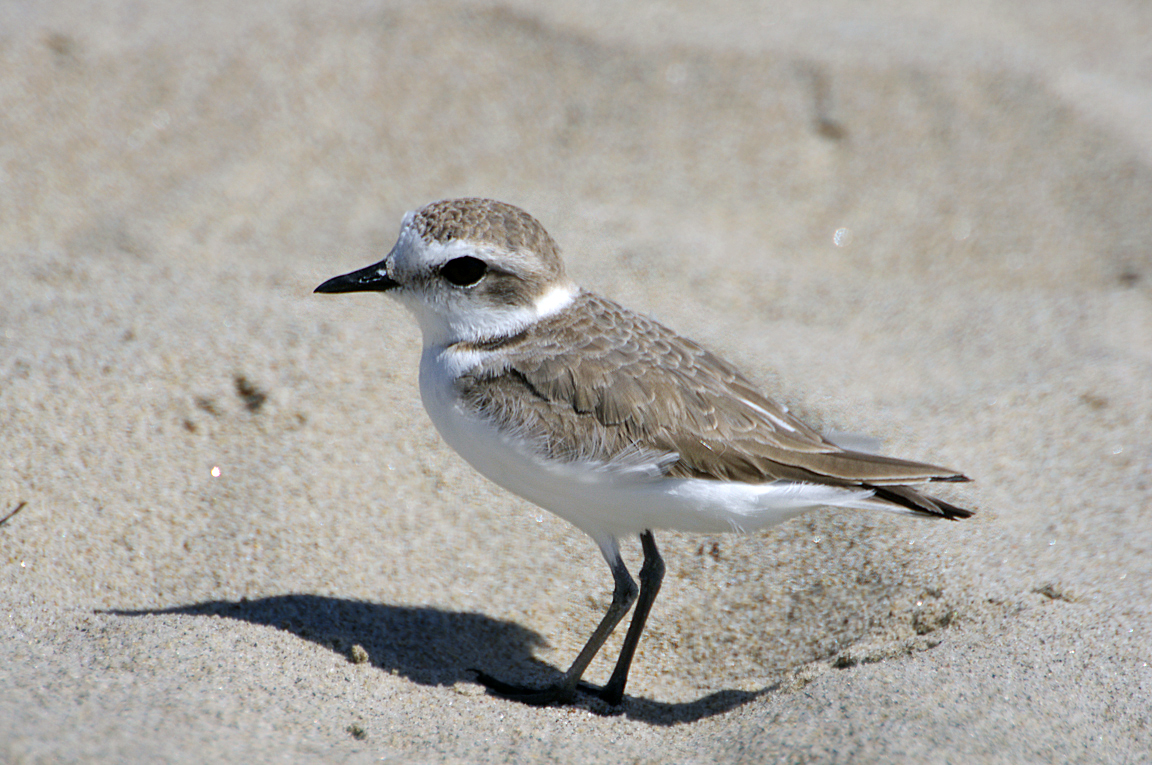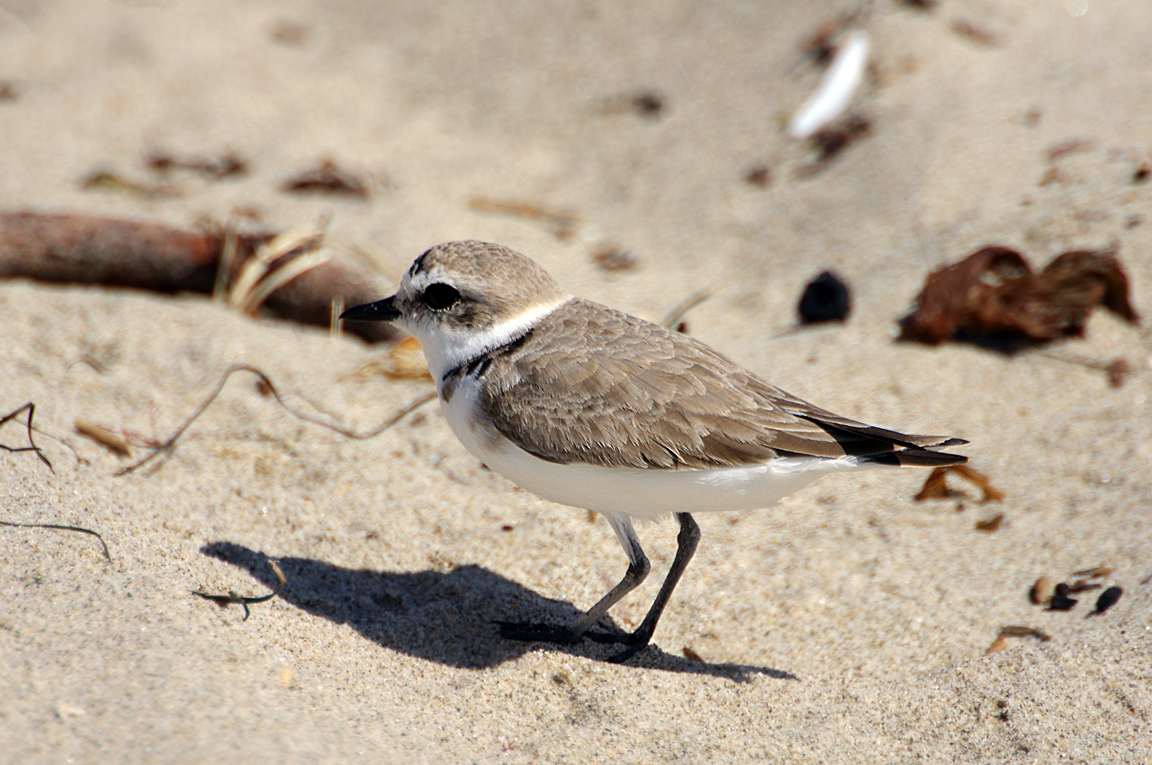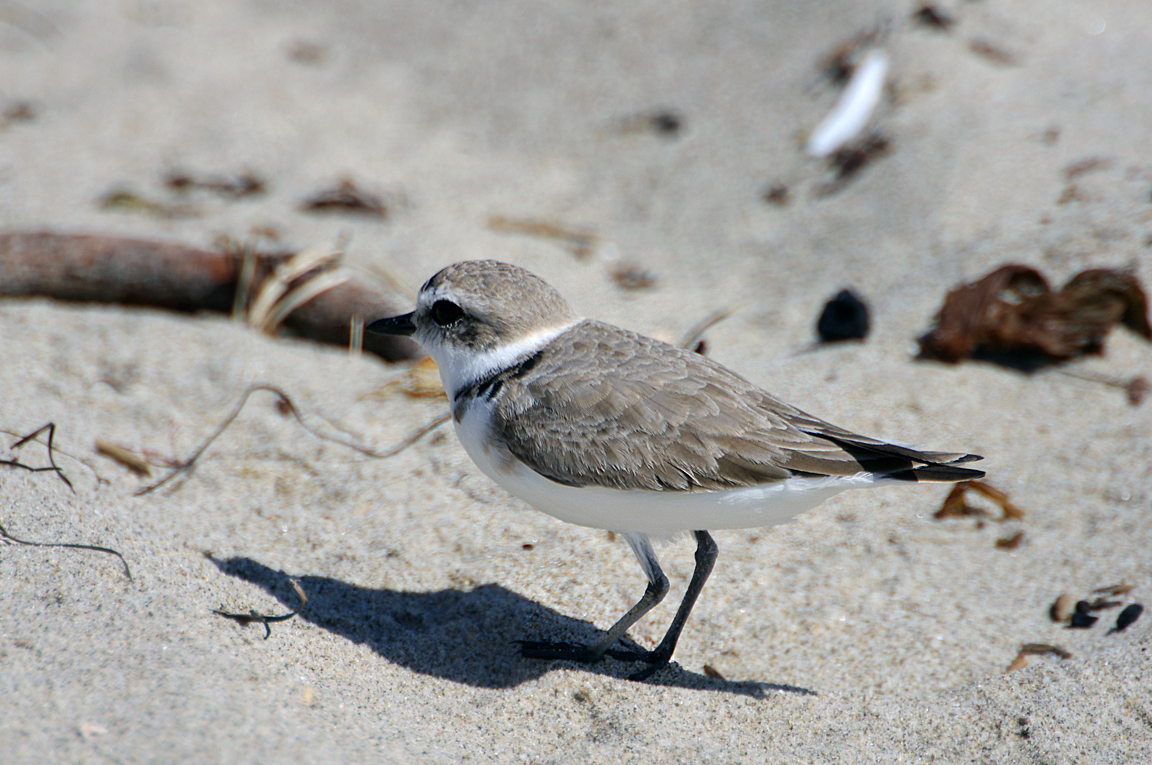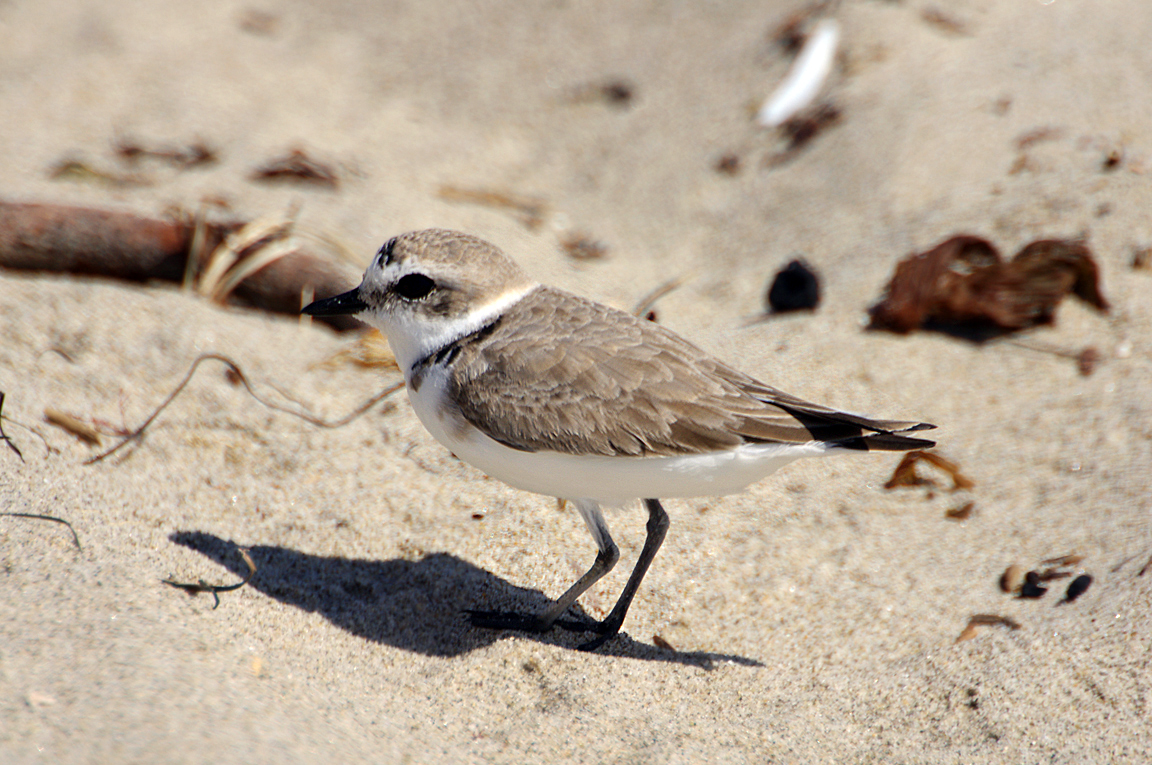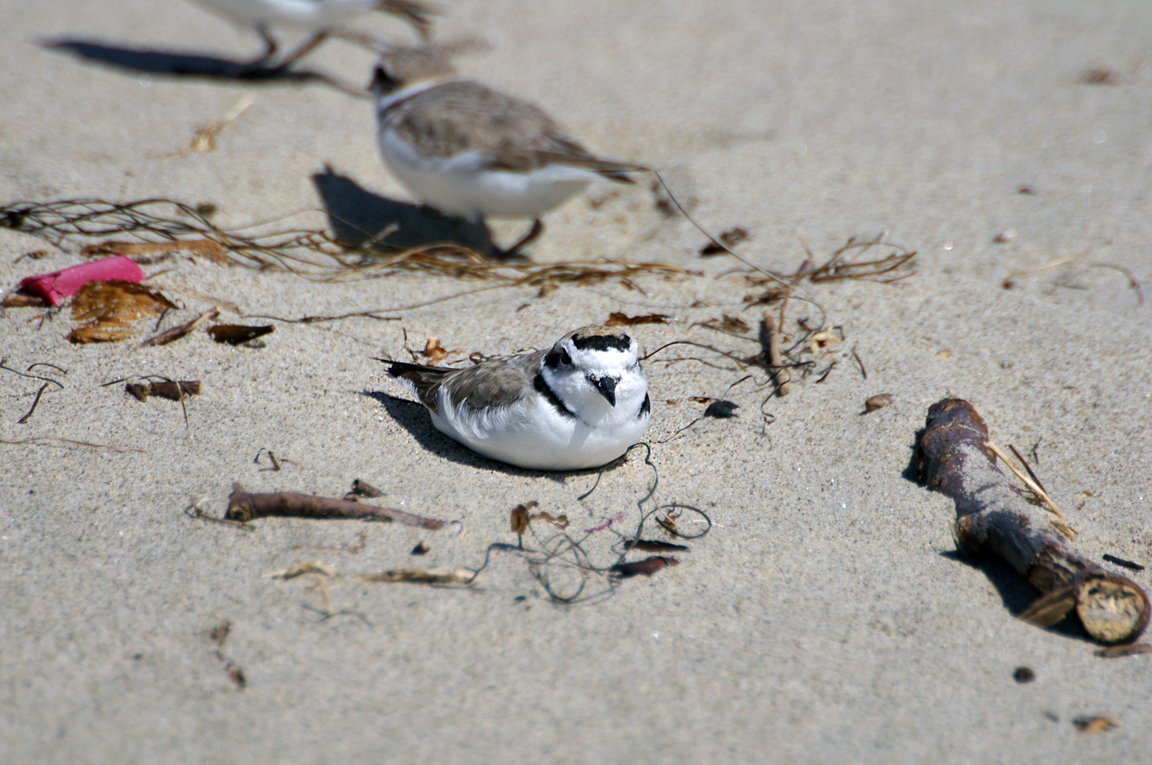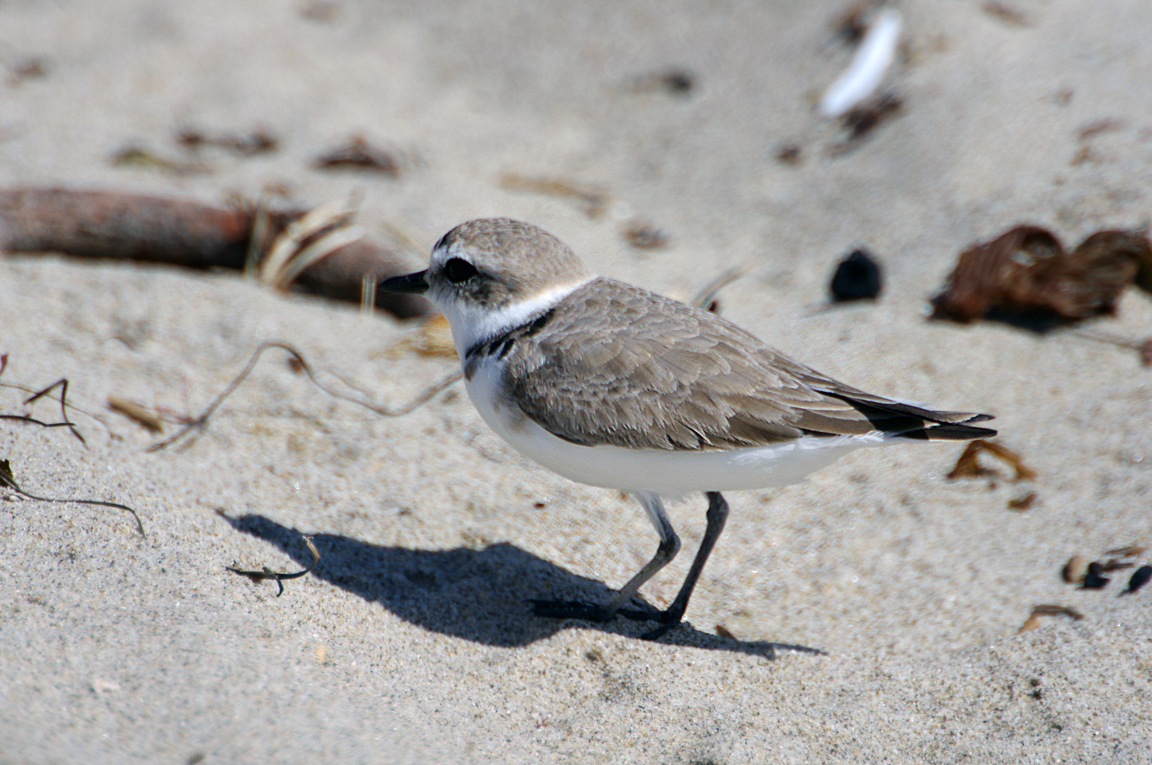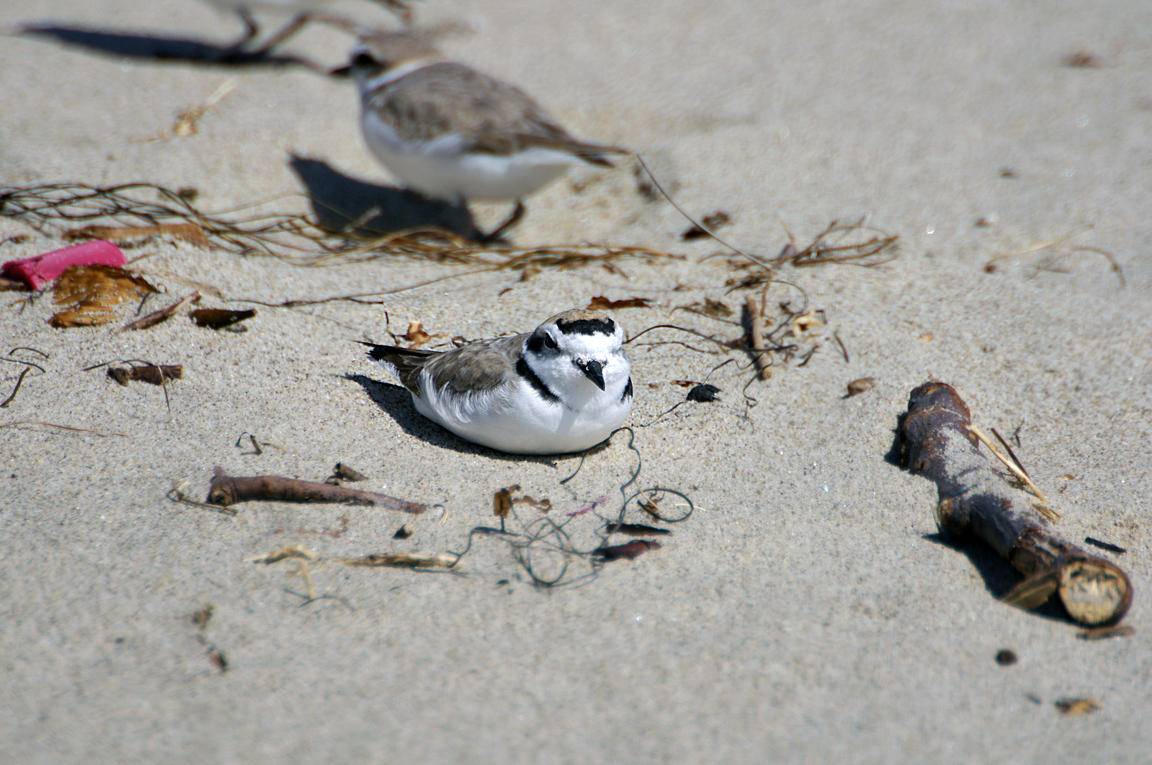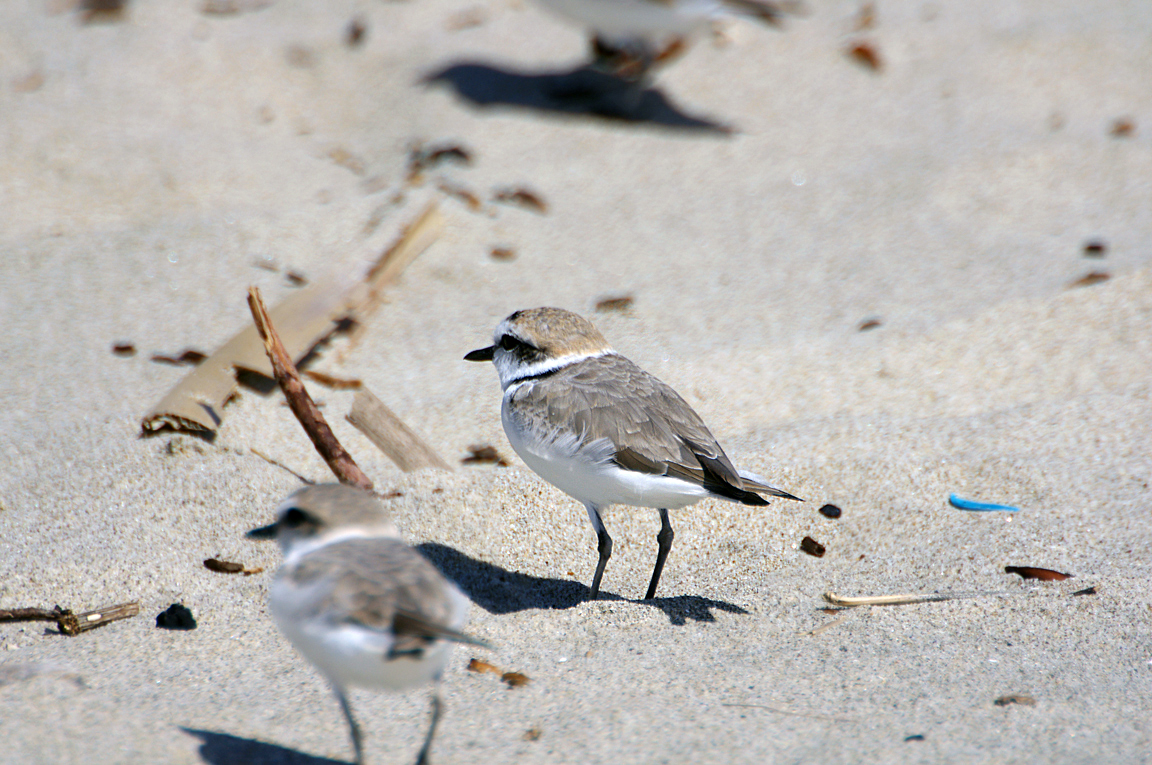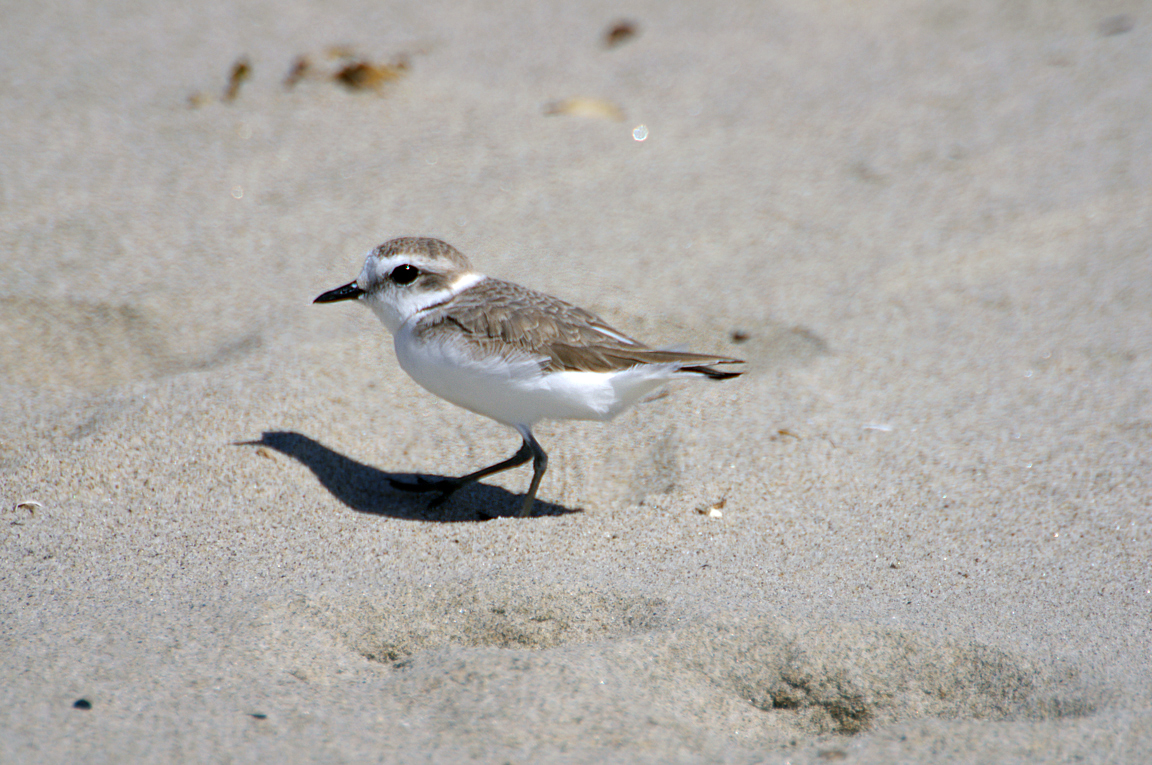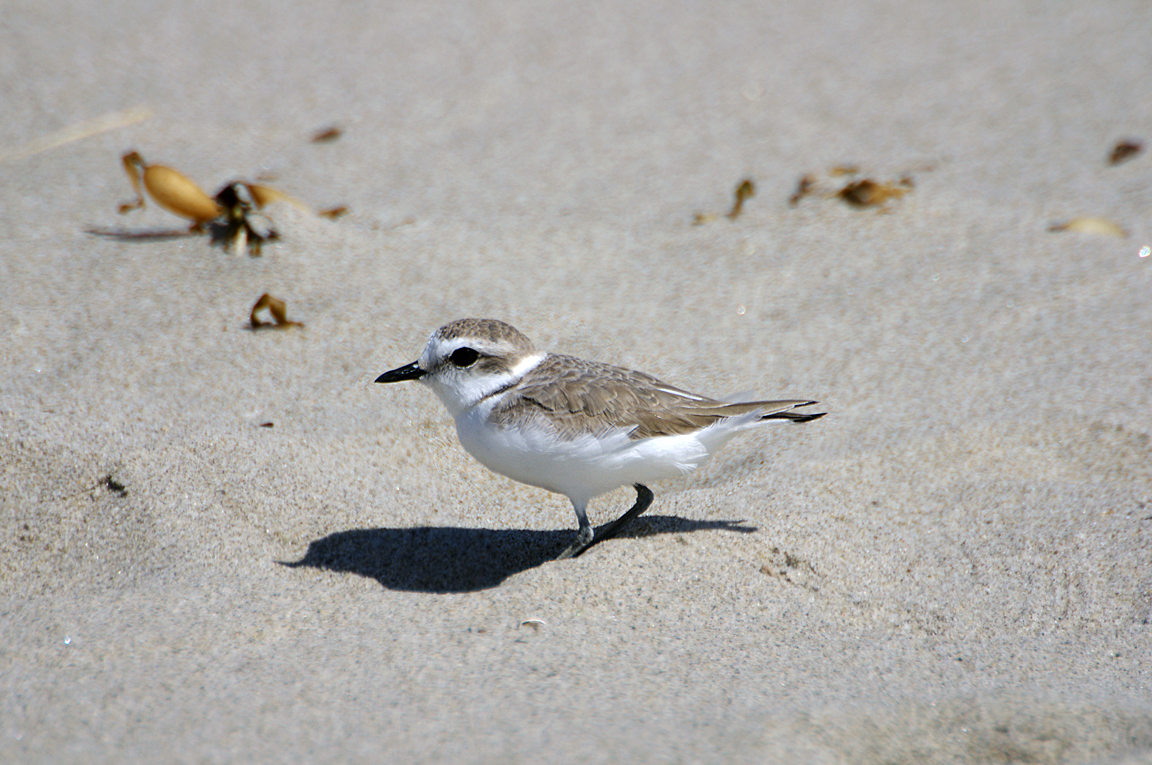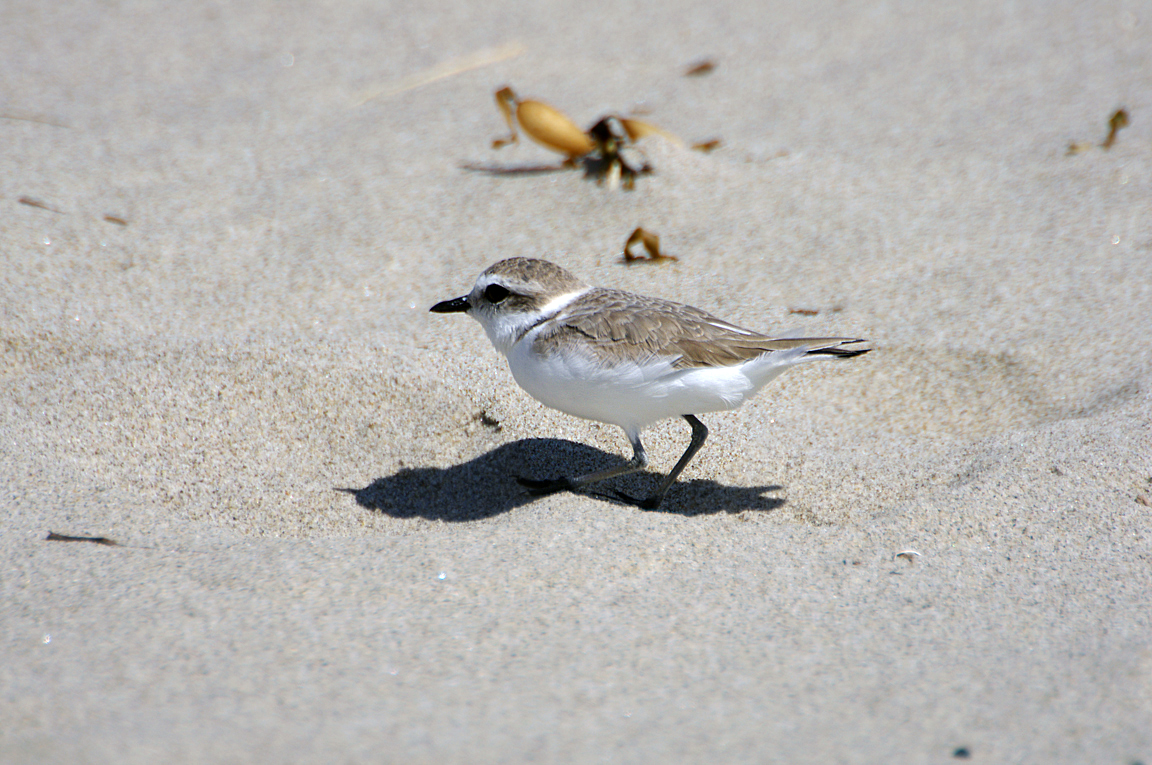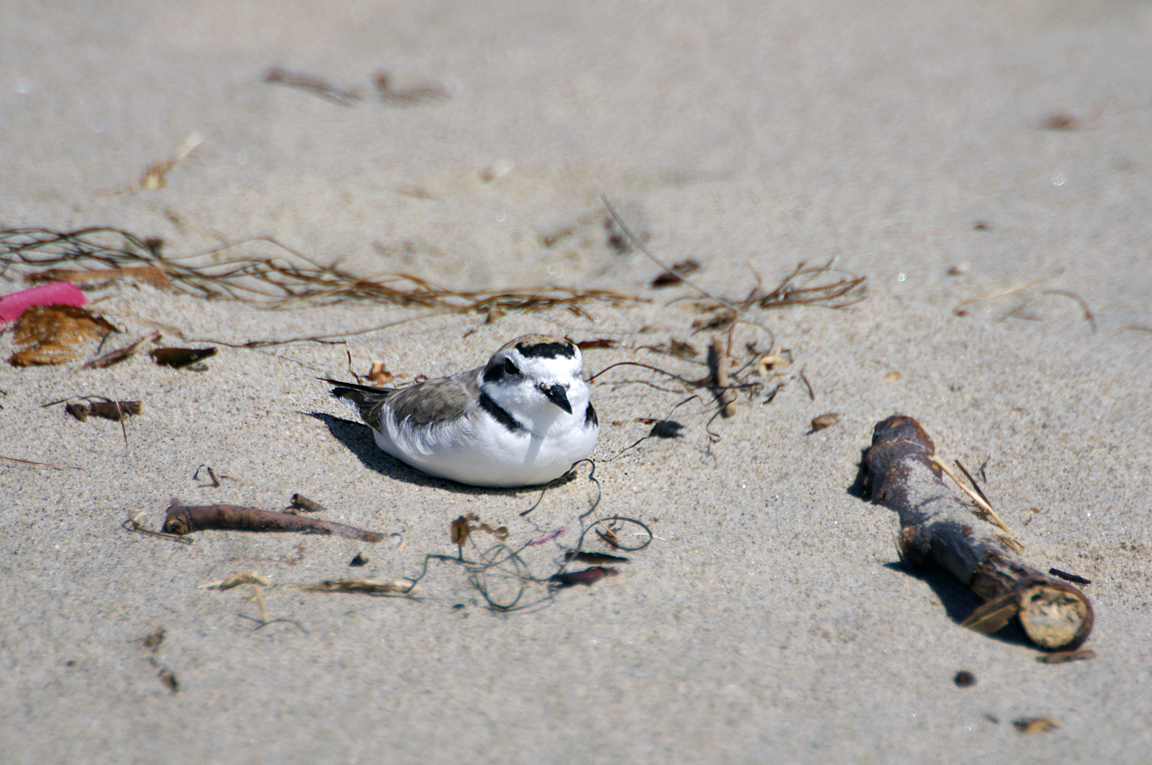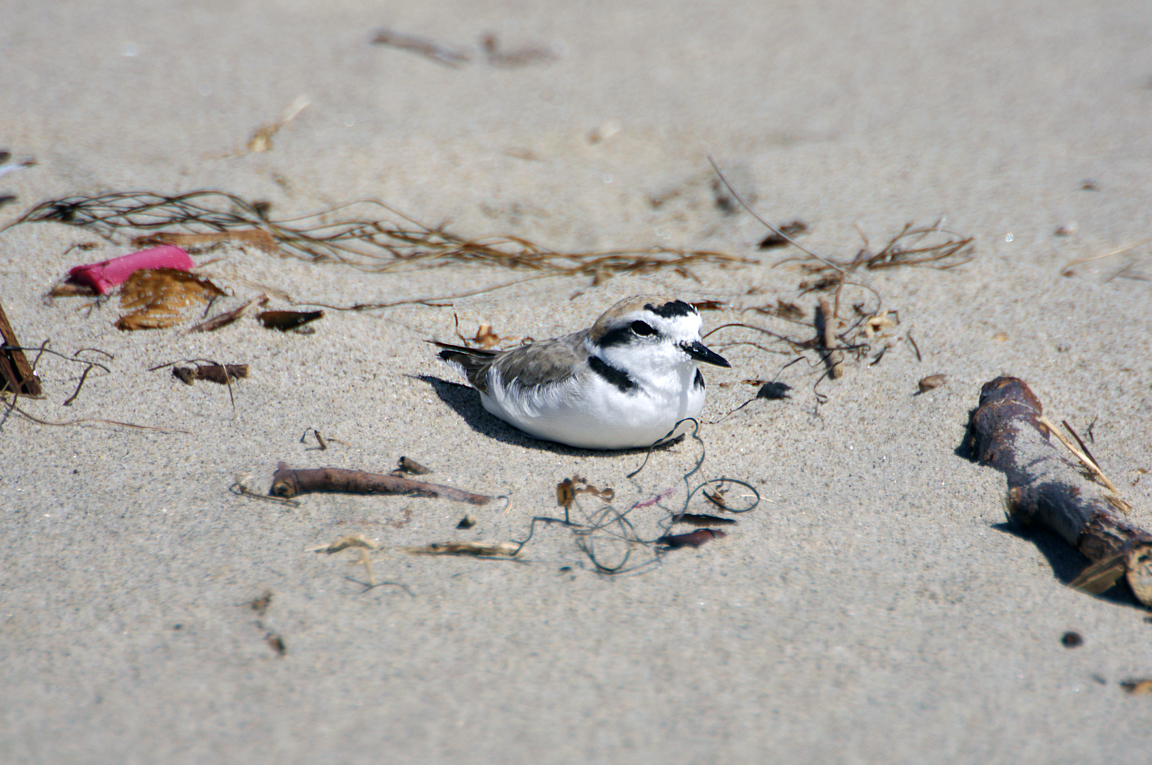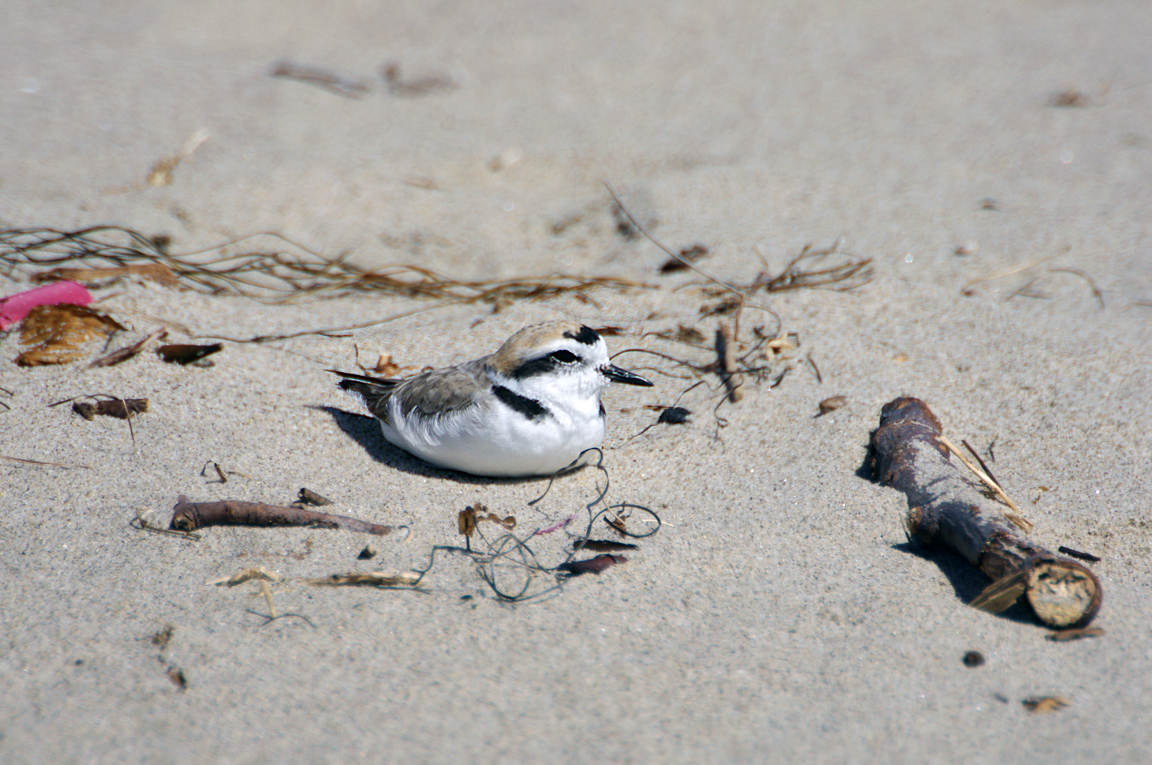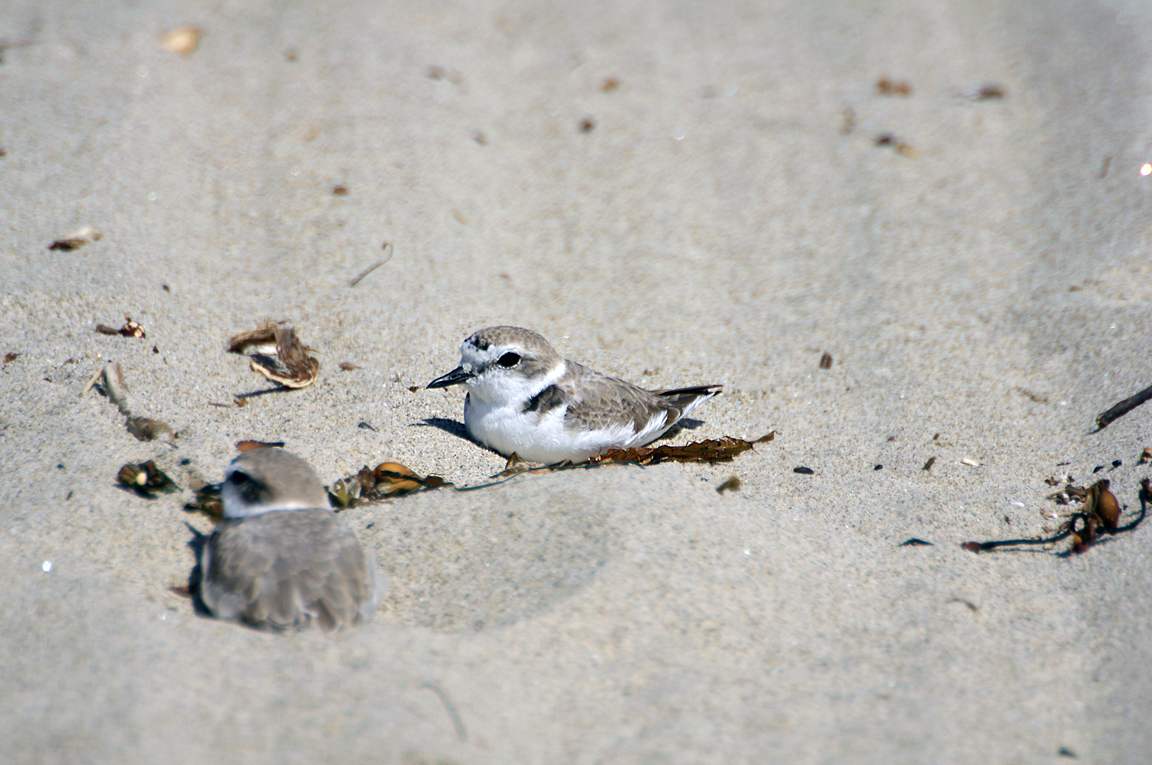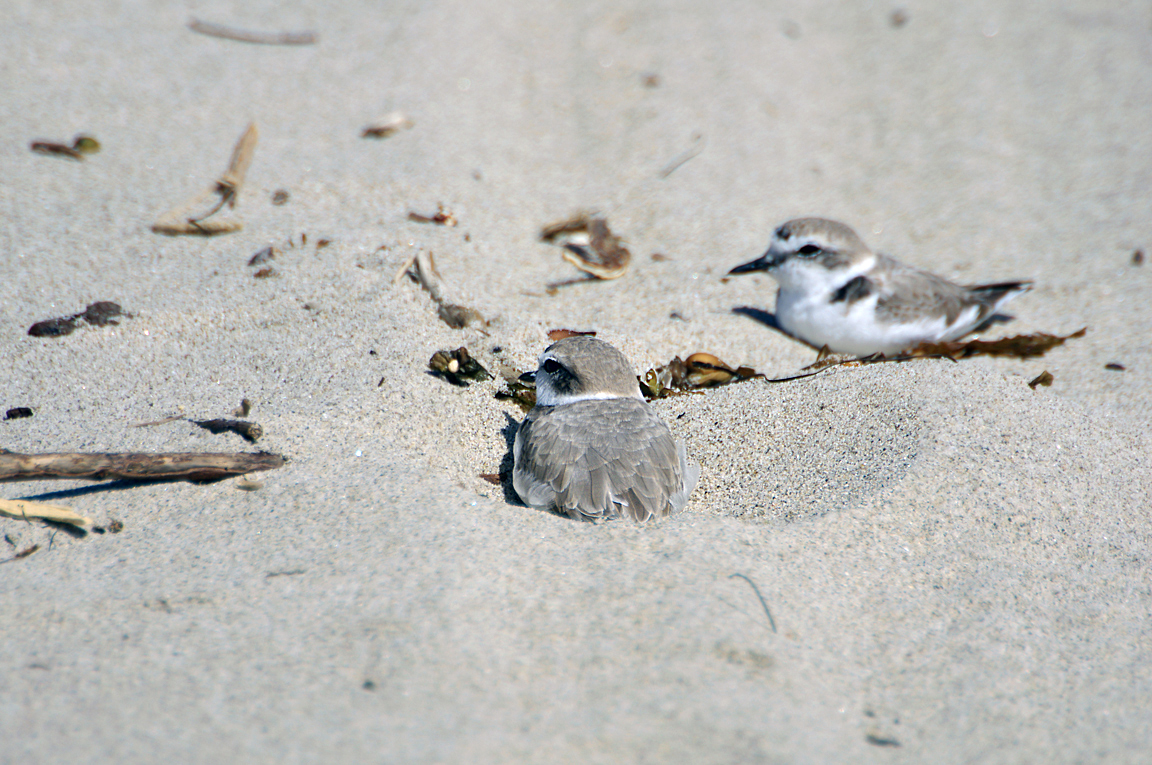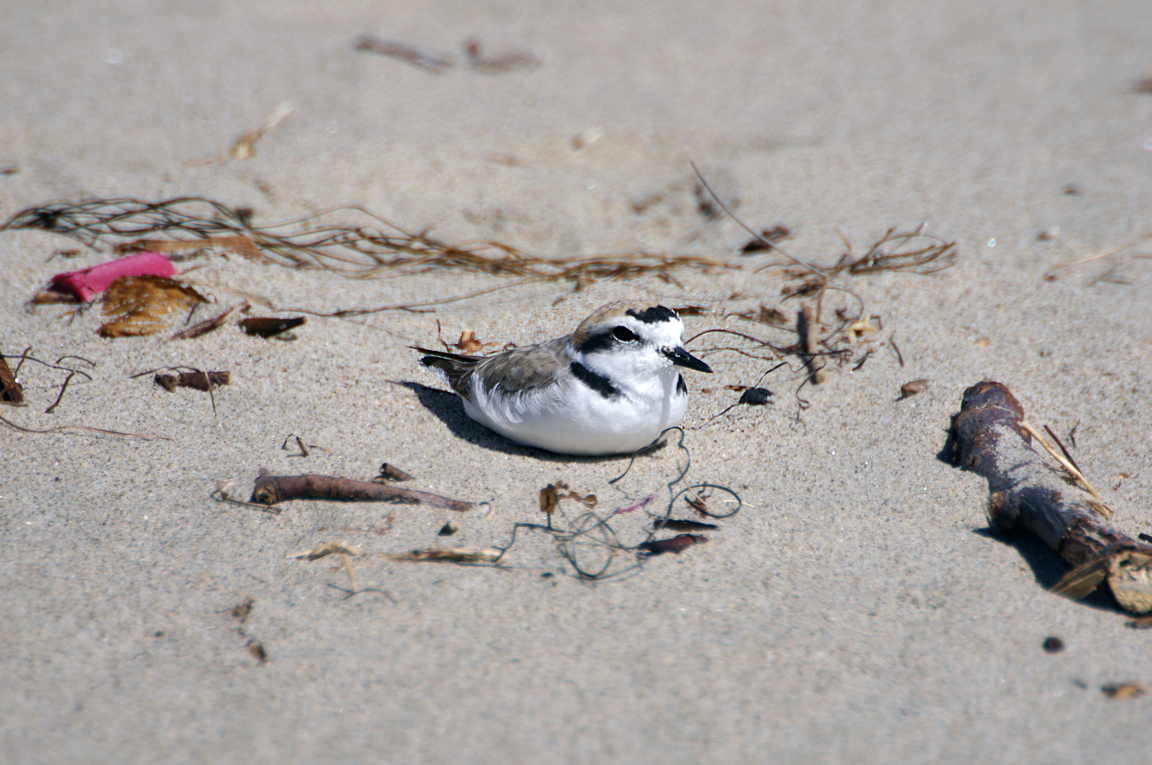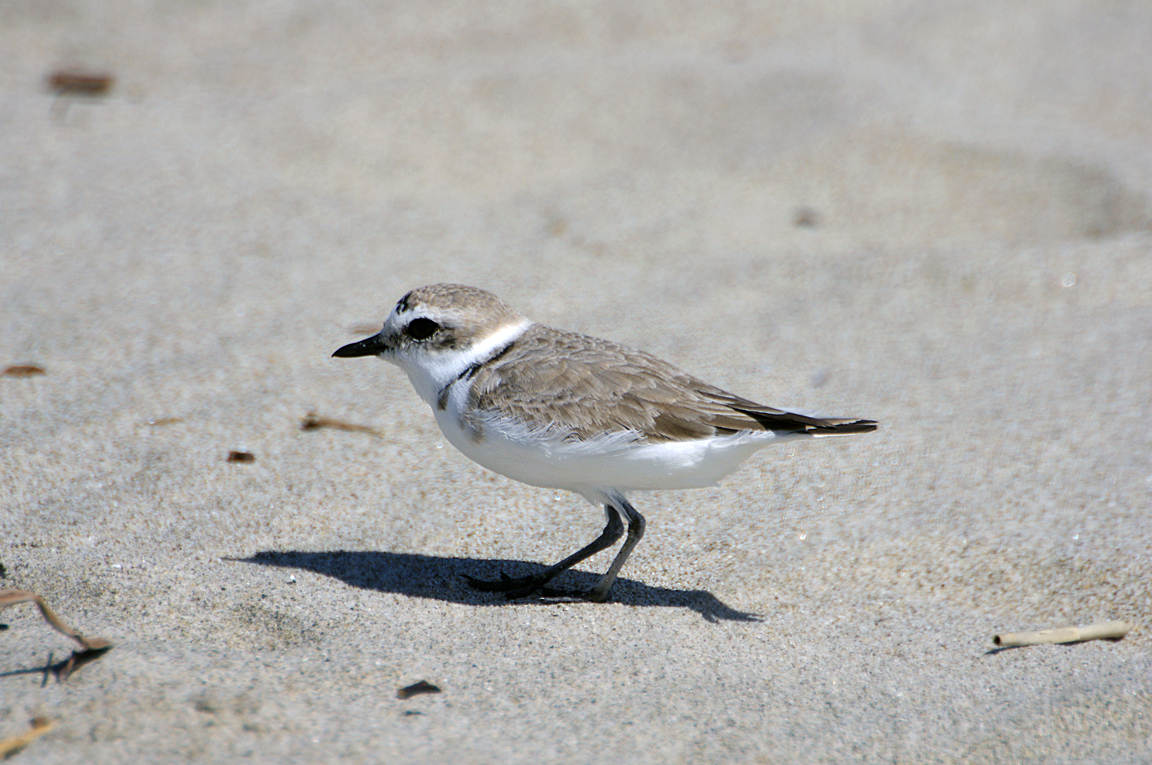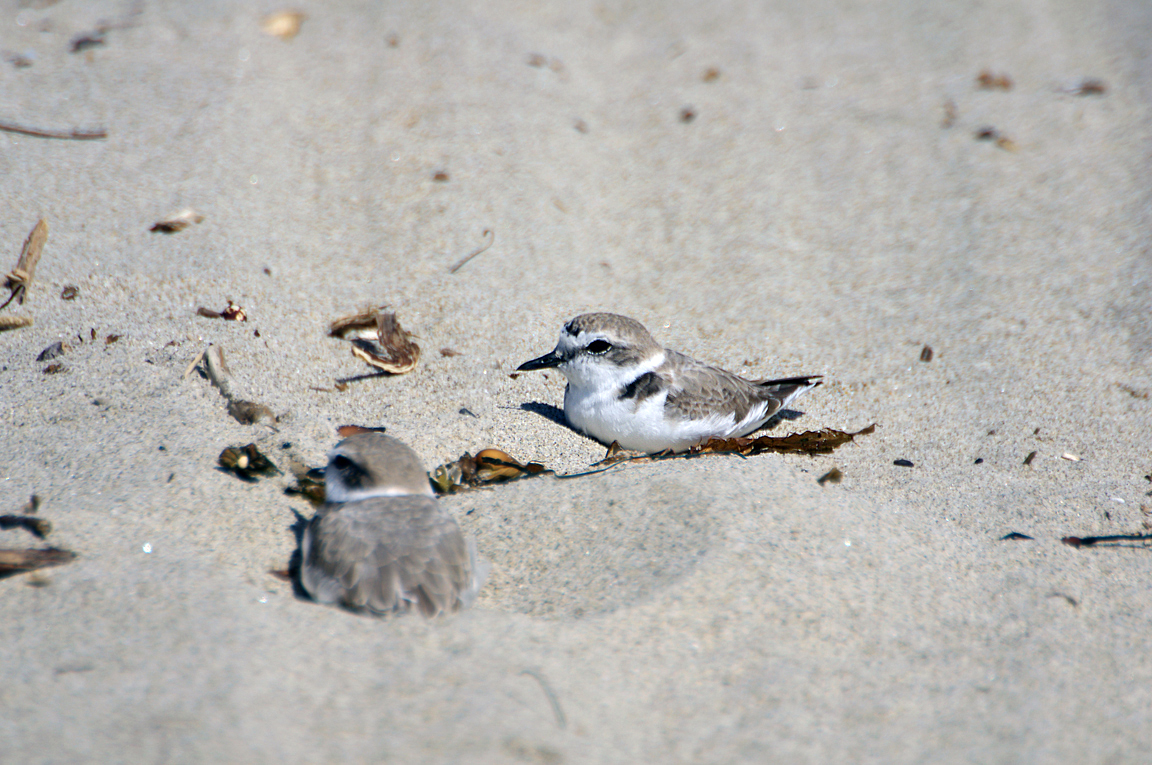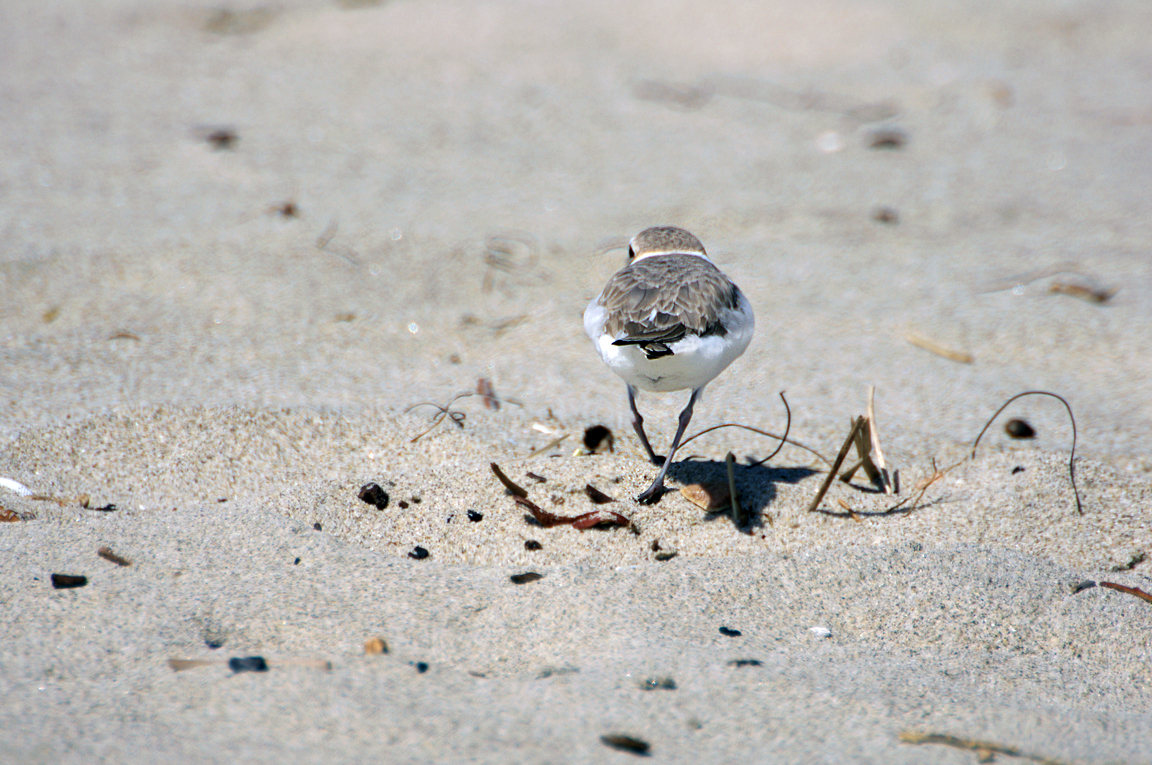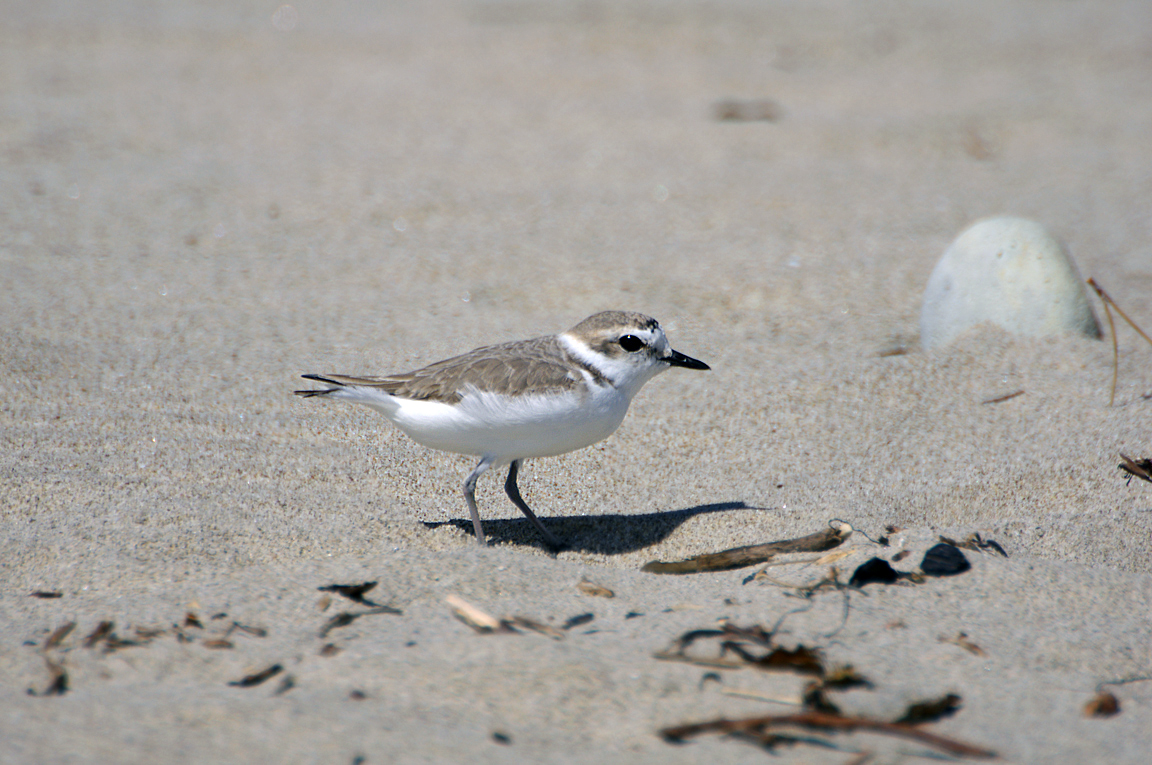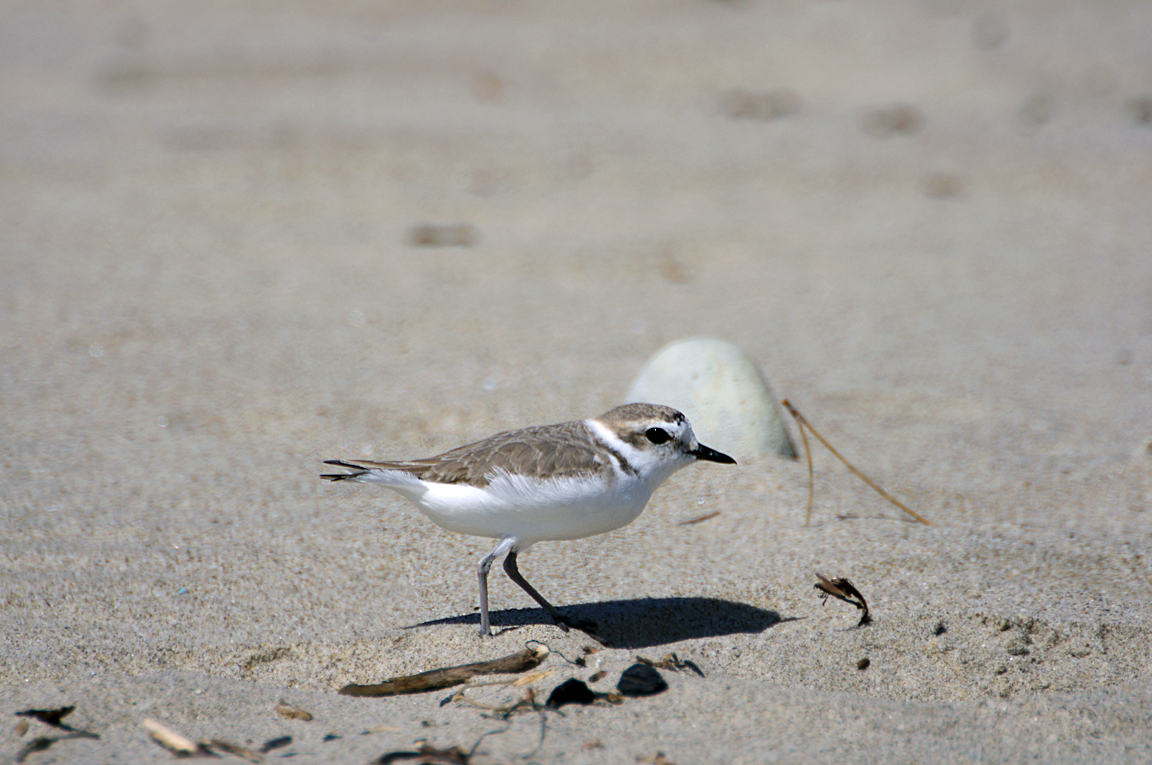|
|
|
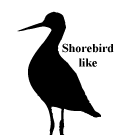 |
Snowy Plover
|
| Charadrius alexandrinus | |
A small plover of beaches and barren ground, the Snowy Plover can be found across North and South America, Eurasia, and Africa. In North America it is restricted to the Gulf and Pacific coasts of the United States, and scattered inland localities from Saskatchewan to California and Texas.
Interesting Information
-
The Snowy Plover frequently raises two broods a year, and sometimes three in places where the breeding season is long. The female deserts her mate and brood about the time the chicks hatch and initiates a new breeding attempt with a different male.
-
Young Snowy Plovers leave their nest within three hours of hatching. They flatten themselves on the ground when a parent signals the approach of people or potential predators. They walk, run, and swim well and forage unassisted by parents, but require periodic brooding for many days after hatching.
Description
Adult Description
-
Small shorebird.
-
Legs moderately long.
-
Neck short.
-
Back pale tan.
-
Underparts white.
-
Dark patches on sides of neck reaching around onto top of chest.
-
Legs dark.
-
Length Range: 15-18 cm (6-7 in)
-
Weight: 40 g (1.4 oz)
-
Size: Small (5 - 9 in)
-
Color Primary: White, Brown
-
Underparts: White
-
Upperparts: Pale Brown
-
Back Pattern: Solid
-
Belly Pattern: Solid
-
Breast Pattern: Solid
Sex Differences
Female slightly drabber
Immature
Similar to nonbreeding adult, but with scaly pale edging on back feathers.
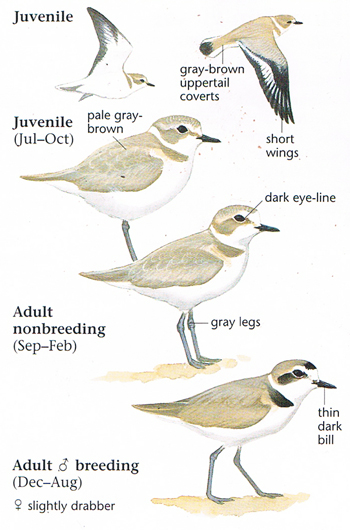
Photo taken from: The Sibley Field Guide by David Allen Sibley
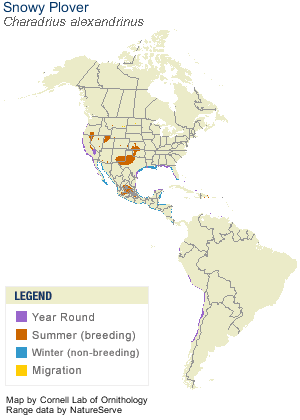
© 2003 Cornell Lab of Ornithology
|
Habitat |
|
Barren to sparsely vegetated sand beaches, dry salt flats in lagoons, dredge spoils deposited on beach or dune habitat, levees and flats at salt-evaporation ponds, river bars, along alkaline or saline lakes, reservoirs, and ponds. |
|
Behavior |
|
Pauses, looks, runs, and then seizes prey from surface of beach or tide flat. Some probing in sand. |
|
Food |
|
Terrestrial and aquatic invertebrates. |
Taxonomy
| Kingdom: | Animalia |
| Phylum: | Chordata |
| Subphylum: | Vertebrata |
| Class: | Aves |
| Order: | Charadriiformes |
| Family: | Charadriidae |
| Genus: | Charadrius |
| Species: | Charadrius alexandrinus |
| Subspecies: | Charadrius alexandrinus alexandrinus |
| Charadrius alexandrinus dealbatus | |
| Charadrius alexandrinus seebohmi |
Similar Species |
|
|
Bird Sound |
|
Call a husky, trilling "purrt," and a whistled "tur-weet," accented on the second syllable. |
|
Eggs look like this |
|
Photo taken from: ARCTOS Collaborative Collection Management Solution |
